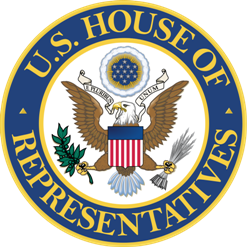Clinton Could Get Elected Alongside Lowest Percentage of Democratic US Reps
Democrats need to net 13 seats with a Clinton victory to avoid setting a party low water mark for the fewest U.S. Representatives elected alongside their presidential nominee

Fanciful speculation earlier in the cycle that Democrats could possibly come within shouting distance of retaking the House has disappeared owing to the fact that the chances of a Hillary Clinton landslide have all but evaporated as well as the unchanging fact that gerrymandering coming out of 2012’s new district lines depressed the number of competitive seats across the country.
While Democrats won’t net 30 seats to take back the House, Larry Sabato’s Crystal Ball currently projects Democratic gains of between 10 and 15 seats with the Rothenberg & Gonzales Political Report estimating a range of between eight and 15 seats.
If the party’s increases are on the low end of those projections – and Clinton wins at the top of the ticket – she will govern for two years with a historically low level of Democratic support in the House.
A Smart Politics analysis finds that if Hillary Clinton is victorious in 2016 she will need Democrats to net at least 13 U.S. House seats for the party to avoid having its worst cycle in which a Democrat won the presidency.
To date, Democrats have won the presidency in 22 election cycles (including Andrew Jackson’s 1828 and 1832 bids).
In only three of these 22 cycles has the party simultaneously failed to win a majority of seats in the U.S. House:
- 1916: When Woodrow Wilson was reelected, Democrats won 214 seats (49.2 percent) – one shy of the Republicans along with three Progressives, one independent Republican, one Prohibitionist, and one Socialist.
- 1996: Bill Clinton easily won a second term, but Democrats only gained a few seats two years after suffering devastating losses during the Republican Revolution. The party claimed only 207 seats to begin the 105th Congress (47.6 percent) with the GOP at 226 and two independents.
- 2012: Barack Obama was reelected with Democrats gaining eight seats – far shy of a majority – winning just 201 seats overall (46.2 percent).
The 46.2 percent of U.S. House seats won by Democrats in 2012 is the current low water mark for the party in cycles during which they won the presidency.
If Clinton is narrowly elected next week, it is quite possible Democrats will come up short of winning even 200 seats in the chamber. [Democrats currently hold 186 seats with two vacancies in heavily favored Democratic districts; a net gain of 13 seats would tie the party’s 2012 record].
That would likely ensure the standstill Barack Obama has experienced with the large GOP House majorities during his last six years in office will continue under the new regime.
Republican presidents, meanwhile, have been elected with their party in the minority in the U.S. House at more than twice the rate as the Democrats, including six times over the last 60 years.
The GOP won 46.4 percent of House seats in 1876 (136 of 293 seats), 46.7 percent in 1956 (203 of 435), 44.1 percent in 1968, 1972, and 1980 (192 of 435), 41.6 percent in 1984 (181 of 435), and 40.2 percent in 1988 (175 of 435).
Republicans have won a majority of seats in the chamber in 16 of the 23 cycles in which they won the presidency.
Follow Smart Politics on Twitter.

(Given their pre-existing structural hurdles and the recently reduced momentum of their presidential nominee) The national and House Ds may just have to settle for feel-good wins in select venues, such as CA-49 (Issa, ex-chair of Oversight and Government Reform committee) and NH-01 (where “thedonald”, “NRAyotte”, and Guinta are all on the district-wide ballot).
EVERYONE seems to have been blindsided(?) by the result (HRC has conceded to trump via phone a while ago) – except for the so-called betting markets (just about all the journalistic and academic outlets, even ones not based on the East Coast or in CA, have presumed the prospect of her co-existing with the R-controlled HR).